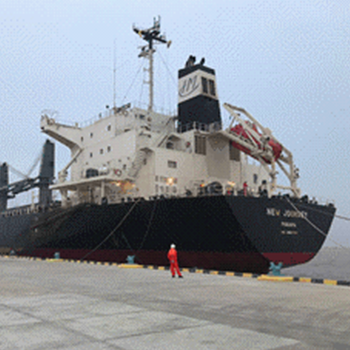The run-up in U.S. and global wheat prices following the Russian invasion of Ukraine made intensive trade service even more important for U.S. wheat importing customers. Foreign Market Development (FMD) program funds helped U.S. Wheat Associates (USW) gave Korean flour millers the experience needed to continue purchasing U.S. wheat in July 2022.
USW Seoul brought six flour milling executives responsible for wheat purchases through their membership in the Korea Flour Millers Industry Association (KOFMIA) to Montana, Washington State and Oregon to see the 2022 wheat crops and gain a better understanding of how the U.S. wheat supply chain ensures quality and value.
Loyalty is Strong
Even though U.S. wheat prices were higher than competing supplies, in August 2022, KOFMIA purchased 82,500 MT of hard red spring (HRS), hard red winter (HRW) and soft white (SW) wheat with an FOB value of $31.8 million. Based on information from the U.S. visit, KOFMIA saved money by adjusting SW protein specifications without compromising functional quality.
Then, in January 2023, one of the millers on the team contacted USW for guidance on a potential opportunity for SW prices. USW demonstrated the advantageous spread between SW and Australian soft wheat. The USW recommendation resulted in an additional purchase of 2,000 MT of SW with an FOB value of $616,000.


